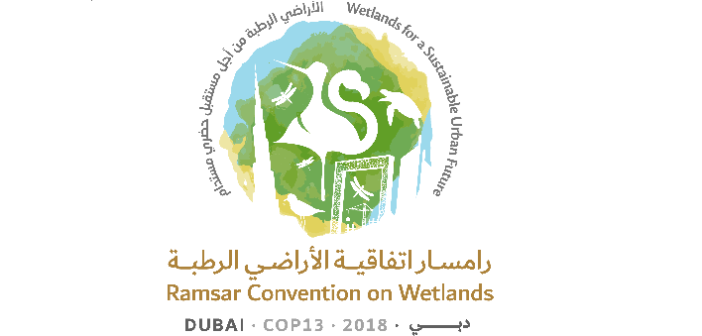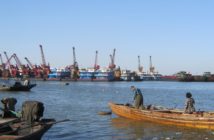by Rutaban Yameen
The 13th Meeting of the Conference of the Contracting Parties (COP13) to the Ramsar Convention on Wetlands of International Importance, better known as the Convention on Wetlands, held discussions on 25 October 2018.
The Convention on Wetlands is an intergovernmental treaty signed by 90 percent of UN member states. In the lead up to the COP13, some 2300 sites were identified for wetland conservation and wise use as governed by the Convention on Wetlands.
Gulf News UAE reported that one-third of global wetlands had disappeared since 1970. The Ramsar Convention Secretariat reported in 2018 that wetlands were declining fast,with some 35 percent of wetlands lost at a rate three times greater than forests since 1970. A quarter of wetland plant and animal species were also at risk of extinction.
“Healthy wetlands are critical to resilient, sustainable cities in the face of climate change, as they provide the best natural defence against extreme floods and storm surges, as well as filtering water for people and businesses,” World World Wildlife Fund lead delegate Dean Muruven said.
At the COP13, 18 cities in Sri Lanka, China, South Korea, Tunisia, France, Hungary and Madagascar were accredited for the first time as “wetland cities” as part of the Wetland City Accreditation scheme under the Convention on Wetlands.Cities accredited were in close proximity to and dependent on wetlands, including those designated as “Ramsar Wetlands of International Importance”.
“These pioneer cities have taken exceptional steps to safeguard their urban wetlands and will serve as examples and inspire other cities towards sustainable urbanisation,” Ramsar Convention Secretary General Martha Rojas Urrego said during the accreditation ceremony at the COP13.
Accreditation as a wetland city does not confer legal rights or obligations on the relevant city or state. Wetland cities are rather encouraged to promote the conservation and wise use of urban and peri-urban wetlands, together with sustainable socio-economic benefits for local people. The main objective of accreditation is to create models for the study, implementation and promotion of the objectives, principles and resolutions enshrined in the Convention on Wetlands.
The World Wildlife Fund said that the Wetland City Accreditation scheme should also be understood in connection with the UN Sustainable Development Goals, which aim to build sustainable cities (SDG11), and to ensure the availability and sustainable management of water and sanitation (SDG6).
“We need urgent collective action to reverse trends on wetland loss and degradation,” Urrego reportedly said.
“[We need to] secure both the future of wetlands and our own at the same time.”



